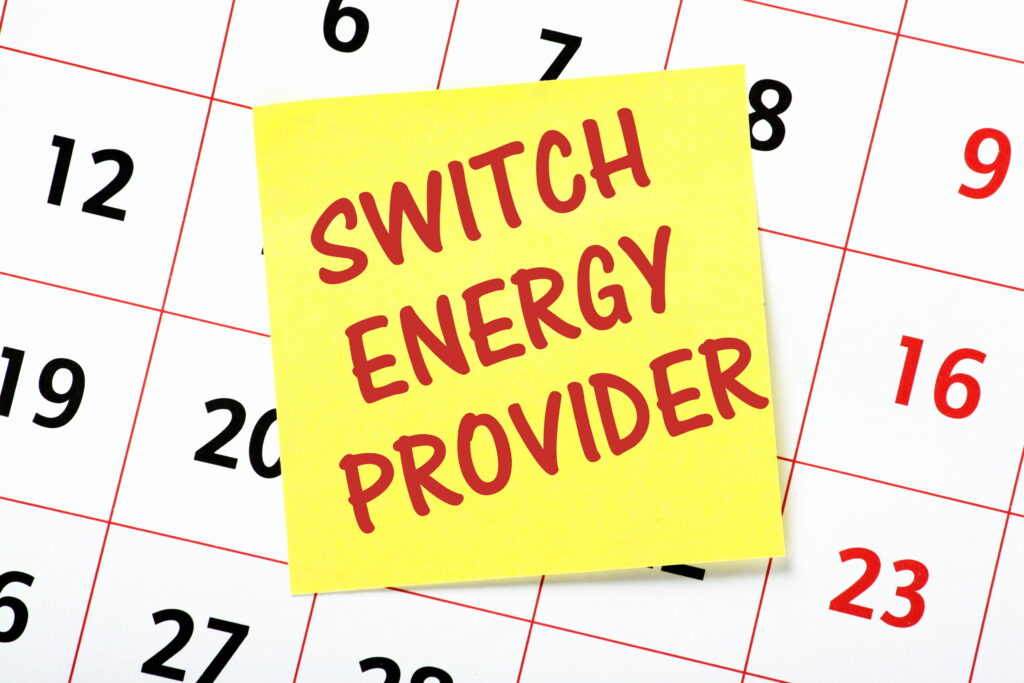Any product or company names, marks, or logos shown on this page are the property of their respective owners. Compare Power is an unaffiliated, independent marketplace. Get unbiased, accurate information backed by our commitment to editorial integrity.
Understanding Charges on Your Bill
When you open your monthly electric bill in Texas, you’ll likely see a whole host of different charges, fees, and taxes on there.
While electricity retailers structure their bills differently, some charges appear frequently across providers.
From ubiquitous fees like TDU delivery costs to Competition Transition Charges, this article demystifies every line item on your Texas electric bill.
Struggling with high electricity bills? Learn proven strategies to reduce your electricity costs, from simple energy-saving tips to finding better rates. Lower your electric bill today →
Table of Contents
Bundled vs Unbundled Pricing
You may also notice that some companies offer bundled pricing plans while others use unbundled pricing models.
Both bundled and unbundled pricing have their advantages. Bundled pricing offers simplicity and ease of understanding, while unbundled pricing provides transparency and a detailed breakdown of charges.
The choice between these two often depends on the preference of the customer and the options offered by the Retail Electric Provider.
Here’s the key difference:
Bundled Pricing: In a bundled pricing structure, all charges associated with your electric service are included in the price per kilowatt-hour (kWh). This means that the rate you see per kWh is comprehensive and includes various costs such as energy charges, TDU delivery charges, and any other fees. This simplification makes it easier to understand your bill, as you’re primarily looking at one consolidated rate for your electricity usage.
Unbundled Pricing: Unbundled pricing, on the other hand, separates these charges on your bill. This means that your bill will itemize each component of the electric service. For example, you might see a separate line item for the energy charge, TDU delivery charges, and other fees. Unbundled pricing provides a more detailed breakdown of your electricity costs, which can be useful for understanding exactly what you’re paying for.
Both bundled and unbundled pricing have their advantages. Bundled pricing offers simplicity and ease of understanding, while unbundled pricing provides transparency and a detailed breakdown of charges.
The choice between these two often depends on the preference of the customer and the options offered by the Retail Electric Provider.
The Most Common Electric Bill Charges
While your bill format depends on your Retail Electric Provider (REP), here are the most common charges you’ll likely see:
- Base Charge – This fixed monthly fee covers basic operating costs for your electric provider. It applies regardless of your actual energy usage.
- Energy Charge – This charge is based on your electricity usage each month, measured in kilowatt-hours (kWh). The more energy you use, the higher this charge will be.
- TDU Delivery Charges – This fee covers electricity delivery costs for the Transmission and Distribution Utility (TDU) that operates power lines in your area.
- Advanced Metering Charge – Texas has required advanced smart meters, which leads to this small monthly charge to cover associated costs.
- Taxes – A variety of sales taxes and municipal fees may appear, most commonly up to about 3% of charges.
- Regulatory Charges – These fees imposed by the Public Utility Commission of Texas cover its operating costs and other regulatory program costs.
Other Common Electric Charges
Depending on your specific electric plan and provider, your monthly bill may also include:
- Customer Charge or Monthly Service Fee – Much like the base charge, this is a fixed monthly fee that doesn’t depend on your energy use.
- Demand Charge – For commercial and industrial customers, this charge is based on your highest electricity demand during the month.
- Metering Charge – This covers meter reading, maintenance, and equipment costs.
- Renewable Energy Charge – For power plans advertising renewable energy, this charge helps support those cleaner energy sources.
Less Common Charges
Some electric bills may have additional one-time fees or lesser-known recurring charges such as:
- Disconnection/Reconnection Fee – If your power was shut off for non-payment, reconnecting may incur this charge.
- Late Payment Penalty – If you pay your bill after the due date, your provider may assess a one-time penalty.
- Outage Credit – You may receive a credit if you experience a major prolonged outage.
- Equipment Fees – These fees can apply to special equipment like a transformer or power quality meter leased from your utility.
All Charges & Fees Defined
Texas electricity bills can be packed with confusing charges like “PUC Assessments,” “Advanced Metering Fees,” and more – this list breaks down what each charge on your electric bill means.
- Base Charge: A flat fee is applied each month regardless of the amount of kilowatt-hours (kWh) used.
- Current Charges: These include the current charges for electric service as detailed in the terms of service document, along with applicable taxes and fees.
- Demand Charge: Based on the rate at which electric energy is delivered to or by a system at a given instant during the billing cycle.
- Energy Charge: A charge based on the energy consumed (kWh).
- Meter Charge: Assessed to recover Transmission and Distribution Utility’s (TDU’s) charges for metering your consumption.
- Recurring and Non-Recurring Charges: These identify and itemize recurring charges other than for electric service and any non-recurring charges such as late fees, returned check fees, restoration of service fees, etc.
- Late Payment Penalty: A one-time penalty not exceeding 5% may be charged on a delinquent bill.
- Sales Tax and Other Charges: These include sales tax collected by authorized taxing authorities.
- Transition Charge: To cover the costs associated with the transition to competition.
- System Benefit Fund: A non-bypassable charge set by the PUC for energy efficiency and customer education programs.
- Miscellaneous Gross Receipts Tax Reimbursement: A fee assessed to recover the miscellaneous gross receipts tax imposed on retail electric providers.
- Nuclear Decommissioning Fee: Assessed only by the local wires company or transmission and distribution utility to cover the cost of safely removing a nuclear generation facility from service.
- Minimum Usage Fee: Also known as a bill credit this fee is added when a customer’s usage falls below a certain threshold. Learn how to make minimum usage fees work for you (not against you) with your home kWh usage.
- Advanced Metering Charge: A charge for electric delivery companies to recover the costs for their Advanced Metering Systems, which is shared among all electricity users in the TDU’s service territory.
- Energy Efficiency Cost Recovery Factor: A charge to recover a TDU’s costs for energy efficiency programs, provided it’s a separate charge exclusively for that purpose and approved by the Public Utility Commission.
- PUC Assessment: A fee to recover the statutory fee for administering the Public Utility Regulatory Act.
- TDU Delivery Charges: These are charges to cover the cost of moving electricity from the generation plant to your home.
- Transmission Distribution Surcharges: One or more TDU surcharge(s) on a customer’s bill in any combination, including charges billed as tariff riders by the TDU.
- Amount Due: The total amount due by the due date of the bill, which may include a past due amount.
- REP Charges: Retail Electric Providers may bundle all charges associated with your electric service into the price per kWh or separate the charges.
- Regulatory Charges: These could include fees imposed by governmental agencies, which are not always explicitly named in the charges list but are sometimes included in the PUC Assessment or other line items.
- Renewable Energy Charges: Charges related to the procurement of renewable energy sources, if applicable.
- Early Termination Fee: Applicable if you cancel a contract with a fixed term before its expiration date.
- Credit Balances and Adjustments: Reflects adjustments from previous billing errors, credits for overpayment, or adjustments due to metering inaccuracies.
- Billing and Payment Convenience Fees: Charged for using certain types of payment methods (like credit cards) or receiving paper bills.
- Cost Recovery Factors: Charges to recover costs related to specific grid or utility investments besides the Energy Efficiency Cost Recovery Factor.
- Connection and Disconnection Fees: Charged for connecting or ending electric service.
- Billing Cycle Charges: These can include fees related to the duration of the billing cycle.
- Payment Assistance Program Contributions: Bill option to contribute to programs that assist others with paying electricity bills.
- Green Energy Surcharges: Associated with sourcing renewable energy for a green energy plan.
- Customer Service Fees: Charged for certain types of customer service interactions.
- Deposits: Used to secure payment based on credit history. Usually refundable.
- Demand Response Program Credits: Credits for participating in programs to reduce usage during peak times.
- Franchise Fees: Charged by utilities for the use of public land for their infrastructure.
- Credit Check Fee: Charged by some providers to check credit when establishing service, especially if a deposit is required.
- Returned Payment Fees: Charged if a payment doesn’t clear due to insufficient funds.
- Restoration of Service Fees: Charged if your service is disconnected and needs to be restored.
- Paper Bill Fee: Charged by some companies for sending paper bills instead of electronic billing.
- Auto-Pay Discount: Discount offered for setting up automatic payments.
- Smart Thermostat Incentives or Credits: Associated with managing energy usage through an enrolled smart thermostat.
- Community Solar Participation Fees or Credits: Associated with participating in a community solar program.
- Contract Renewal Fees: Uncommon fee that some providers charge for renewing a contract.
- Outage Credits: Credits are provided in some cases for prolonged outages.
- Grid Contribution or Infrastructure Maintenance Fees: Grid maintenance or infrastructure improvements charges.
- Renewable Energy Certificates (RECs) Purchases: Charges related to purchasing RECs to offset energy usage.
- Payment Arrangement Fees: Charged by some providers for setting up payment plans for overdue bills.
- Out-of-Cycle Meter Reading Fees: Charged if a customer requests a meter reading outside the normal schedule.
- Equipment Rental Fees: Charges for renting or leasing special equipment installed at the customer’s location.
- Third-party Service Charges: Charges for services from third parties are included in the electric service offering.
- Emergency Power Restoration Charges: Charges to cover extraordinary power restoration costs following major outages.
- Voltage Monitoring Fees: Charges for businesses or high-usage residential customers who require voltage monitoring.
- Energy Consultation Fees: Charges for personalized energy consultation services.
- Administrative Fees: General fees for account maintenance.
- Prepayment Service Charges: Charges associated with prepaid electricity plans.
- Environmental Compliance Fees: Charges to cover costs related to environmental regulations and compliance.
- Capacity Charges: Charges related to the capacity of electricity required or reserved, especially for commercial customers.
- Peak Demand Charges: Charges based on the highest level of power used during peak periods, for some commercial customers.
- Carbon Offset Fees: Pay for carbon reduction projects to offset carbon footprint.
- HVAC Efficiency Program Fees: Associated with programs to improve HVAC efficiency.
- Load Management Program Fees: Charges or incentives related to managing energy usage during peak periods.
- Smart Grid Fees: Charges to support smart grid technology development and maintenance.
- Thermostat Adjustment Service Charges: Charges for services that remotely adjust thermostats to save energy.
- Customized Billing Charges: Charges for non-standard or more detailed billing reports per customer request.
- Energy Audit Fees: Charges for audits aimed at identifying home or business energy savings opportunities.
- Rate Schedule Fees: Additional charges related to specific rate schedules like time-of-use or tiered rates.
- Power Factor Adjustment Charges: Charges or credits for commercial customers based on the power factor (a measure of electrical efficiency) of their equipment.
- Excess Usage Charges: Charges for usage exceeding a certain threshold, per some plans.
- Infrastructure Upgrade Fees: Charges to cover costs of upgrading electrical infrastructure.
- Service Visit Fees: Charges if a technician visit is required and not covered by standard service.
- Billing Correction Fees: Charges for correcting billing errors.
- Legal or Regulatory Compliance Fees: Charges to cover costs related to complying with regulations.
- Standby Service Charges: Charges for customers with backup generation relying on the grid for standby service.
- Emergency Service Fees: Additional fees for electrical emergency response services.
- Voltage Regulation Charges: Charges for customers requiring specific voltage level maintenance.
- Capacitor Installation & Maintenance Fees: Charges for installing and maintaining power factor correction capacitors.
- Power Adjustment Factors: Bill adjustments based on changes in electricity generation/purchase costs.
- Seasonal Rate Adjustments: Rate changes based on season (summer/winter).
- Renewable Energy Program Participation Fees: Charges related to participating in specific renewable energy programs.
- Reactive Power Charges: Charges related to reactive power for industrial customers.
- Energy Storage Service Fees: Charges for using utility-provided energy storage solutions.
- Billing Adjustment Fees: Charges for adjusting bills due to disputes or errors per customer request.
- Online Account Management Fees: Charges for online account tools or mobile app access.
- Demand Response Incentive Payments: Credits or incentives for participating in demand response programs to reduce usage during peak demand times.
- Grid Access Charges: Charges for accessing the electrical grid, especially in cases where the customer generates some of their power.
- High Bill Alert Service Fees: Charges for services that notify customers when usage is unusually high.
- Late Payment Interest: Interest charged on overdue payments.
- Customer Assistance Program Contributions: Voluntary bill contributions to help other customers pay bills.
- Outage Monitoring Service Fees: Charges for advanced outage monitoring and reporting services.
- Surge Protection Service Fees: Charges for utility-provided surge protection equipment or services.
- Service Initiation Fee: A one-time charge applied when first establishing service to cover administrative setup costs.
- Payment Processing Fees: Charges to cover transaction costs of certain payment methods.
- Distribution Cost Recovery Factor (DCRF): Allows utilities to recover capital investments in infrastructure between rate cases.
- State Colleges and Universities Discount: A discount is available to state colleges and universities.
- Solar Credits/Incentives: Credits or rebates related to solar panel installation/usage.
- Electrical Infrastructure Relocation Charges: Charges utilities can assess related to relocating electrical infrastructure at a customer’s request.
- Primary Service Charge: An additional charge imposed by some utilities for large industrial or commercial customers receiving primary voltage service.
- Power Generation Service Charge: For customers participating in a buy-back program where excess energy is sold to the utility.
- LED Light Bulb Incentives: Some utilities offer rebates for installing energy-efficient LED light bulbs.
- Electric Vehicle Charging Credits: Rebates or incentives related to installing EV charging infrastructure.
- Utility Reward Points: Some plans allow customers to earn reward points for paying bills, which can be redeemed for gifts/prizes.
Electricity Bill Charges FAQs
Why do I see “Taxes” on my Texas electricity bill?
These are state/local sales taxes, fees, and surcharges authorized by different taxing authorities.
What are the recurring fees I have to pay monthly?
At minimum – a base charge, energy usage charge, and utility delivery fees recur monthly.
What additional charges might be on my bill?
Potential charges range from meter reading fees to regulatory assessments, equipment charges, renewable energy fees, etc.
Don’t Sweat Your Electric Bill
Understanding all the charges on Texas electric bills allows you to accurately compare pricing between different plans and providers. If you see unfamiliar fees on your bill, contact your electricity retailer and request an explanation.
As always, the energy experts at ComparePower are available to answer any questions about electric plan choices and costs in Texas-deregulated areas.
Call us at 855-441-3030 Monday through Friday, 8:30 a.m. to 6:30 p.m., or Saturday, 9:00 a.m. to 4:30 p.m.








